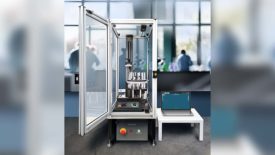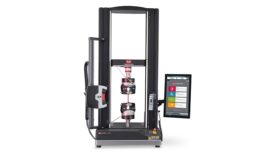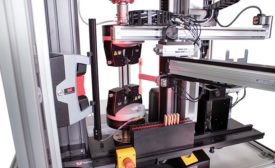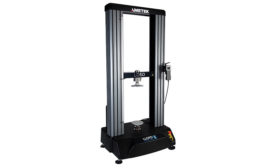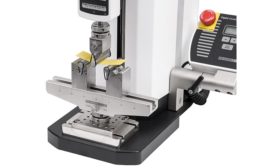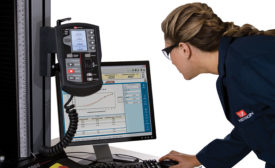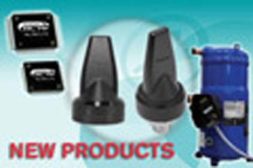Home » Keywords: » universal testers
Items Tagged with 'universal testers'
ARTICLES
Management
Unchain your brain by using techniques that are proven by empirical data.
Read More
Test & Inspection
Smarter Testing Machines Require New Training Approaches
Artificial intelligence and machine learning are carving out new possibilities for data analysis and user interaction.
December 31, 2024
Test & Inspection
Universal applications and implementations of UTMs
A universal tester can regularly be found implementing tension and compression applications in QC and R&D environments.
April 18, 2024
Quality 101
Automation’s Growing Role in Universal Testing
The pandemic proved just how important universal testers are to quality. As staff shorages endure, automation is keeping this technology on point.
May 10, 2023
Test & Inspection
Reduce Testing Downtime through Quality Measures
Testing system downtime causes shipment delays, upset customers, and lost revenue.
August 1, 2022
Automation: The Union of Efficiency and Repeatability
A fully-automated system requires minimal training and provides reliable results.
February 1, 2019
What to Consider When Buying a Material Tester
There is a material tester for every need.
January 8, 2018
The Universality of a Universal Testing Machine
A staple of quality control laboratories around the world, a UTM is an indispensable asset to quality and engineering professionals.
April 1, 2017
Test & Inspection
To Retrofit or Not to Retrofit: When Your Universal Testing System Gets Old
It is possible to retrofit almost any older testing system. The question is whether the investment is worthwhile.
July 1, 2016
Stay in the know with Quality’s comprehensive coverage of
the manufacturing and metrology industries.
eNewsletter | Website | eMagazine
JOIN TODAY!Copyright ©2025. All Rights Reserved BNP Media.
Design, CMS, Hosting & Web Development :: ePublishing



